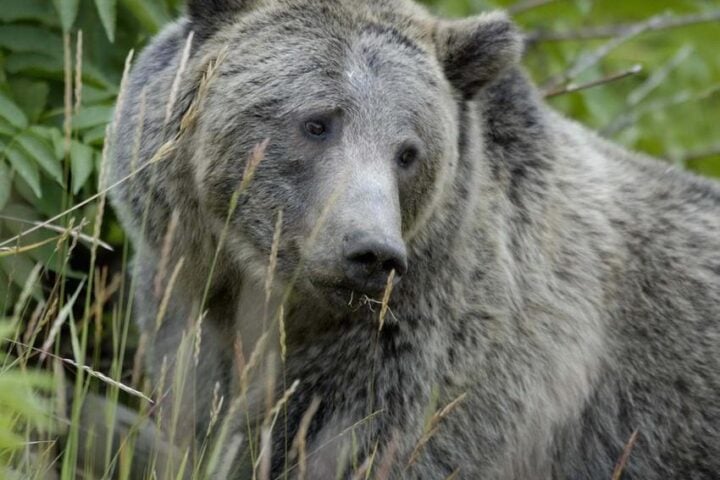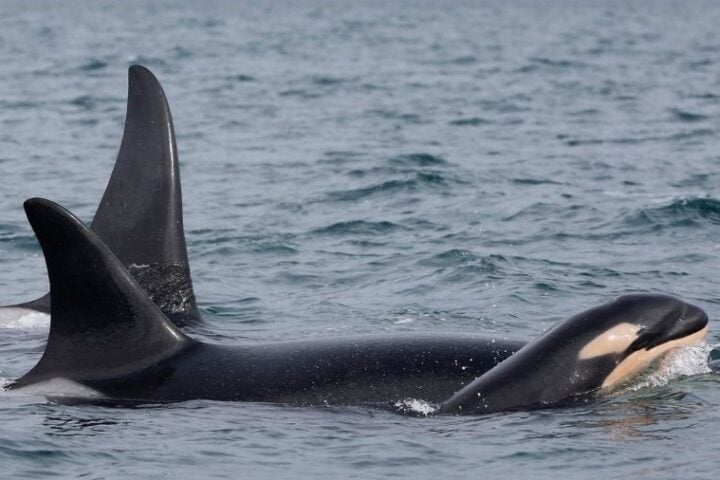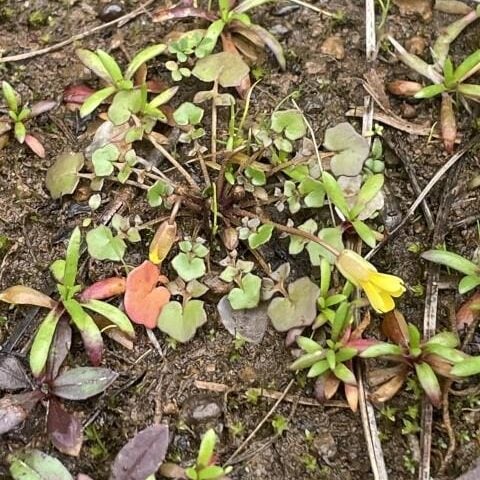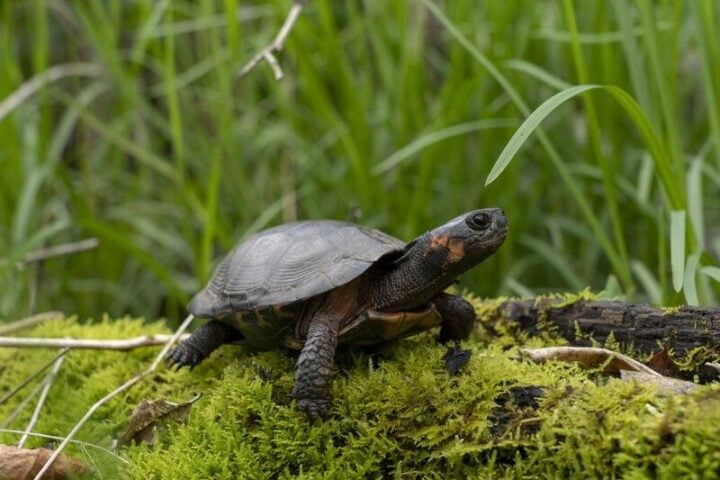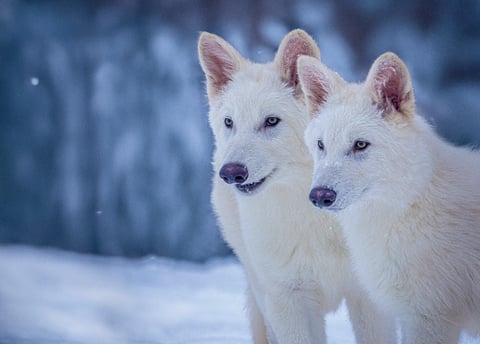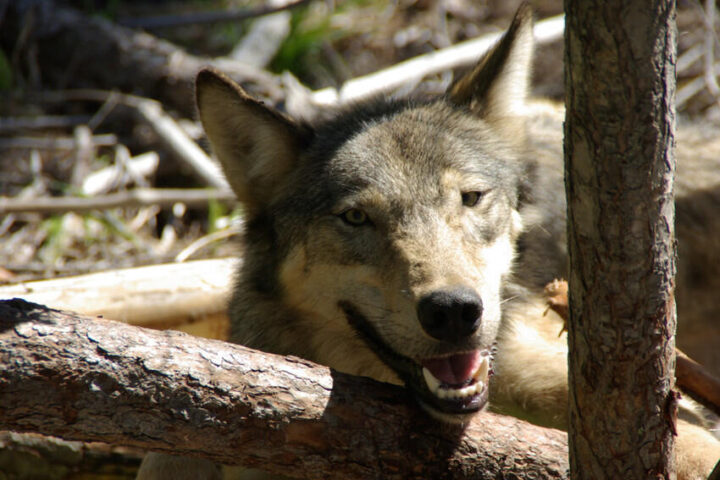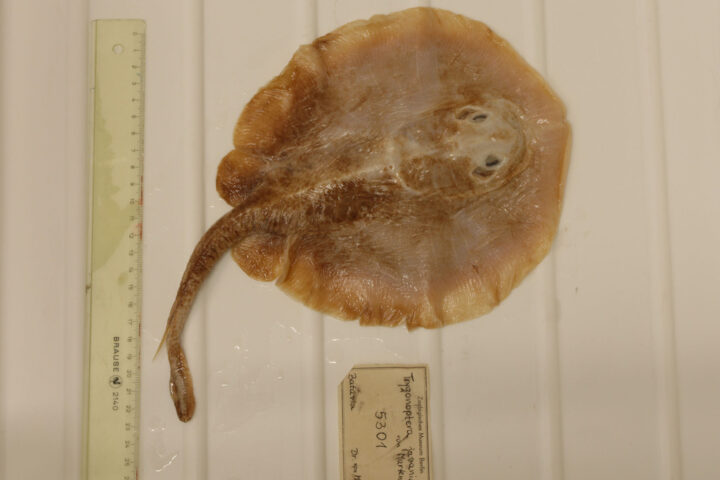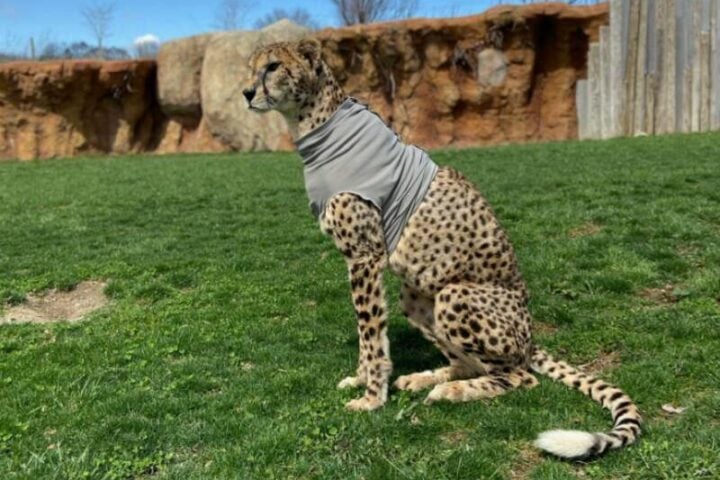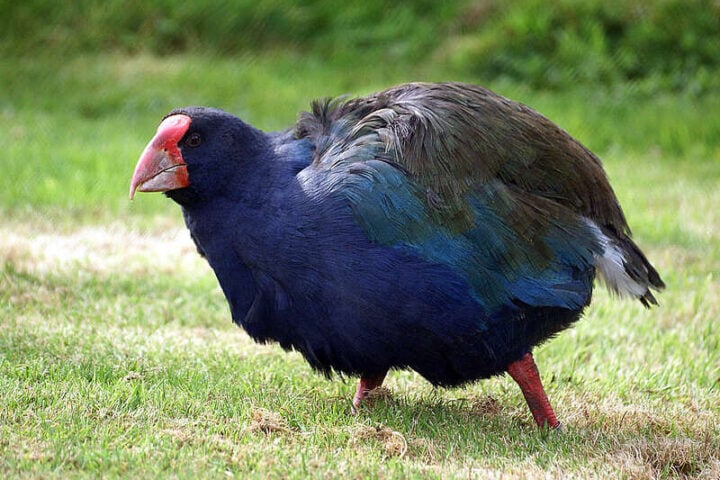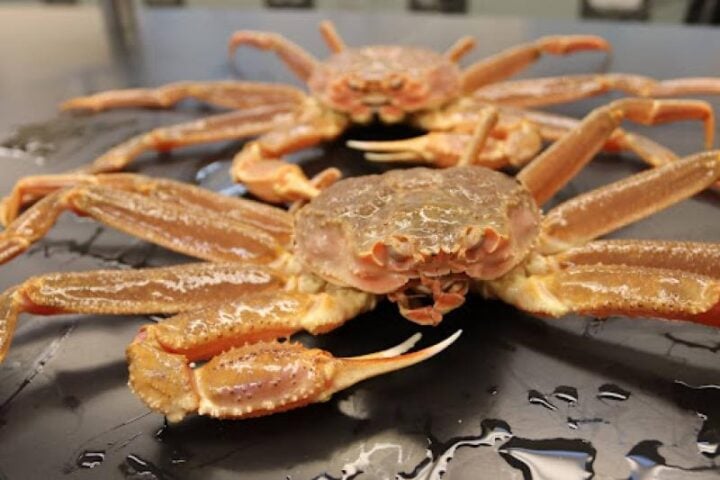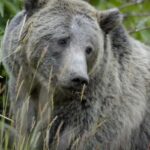A baby gelada monkey, born on March 14, 2025, at Yorkshire Wildlife Park (YWP) near Doncaster has given wildlife conservationists a reason to celebrate. The birth marks a significant achievement for European conservation efforts aimed at protecting this unique primate species.
The newborn, whose gender remains undetermined, was born to 19-year-old Bachuma, the alpha female of her troop, and 11-year-old Taylor, a first-time father. Since giving birth, Bachuma has kept the infant tightly secured to her chest, displaying the protective behavior typical of experienced mothers.
“We were delighted when Bachuma first started showing signs of pregnancy,” said Amy Wright, Section Head of the Primate Team at YWP. “At 19 years old, Bachuma is the alpha female of one troop of geladas and fiercely protective of her new infant.”
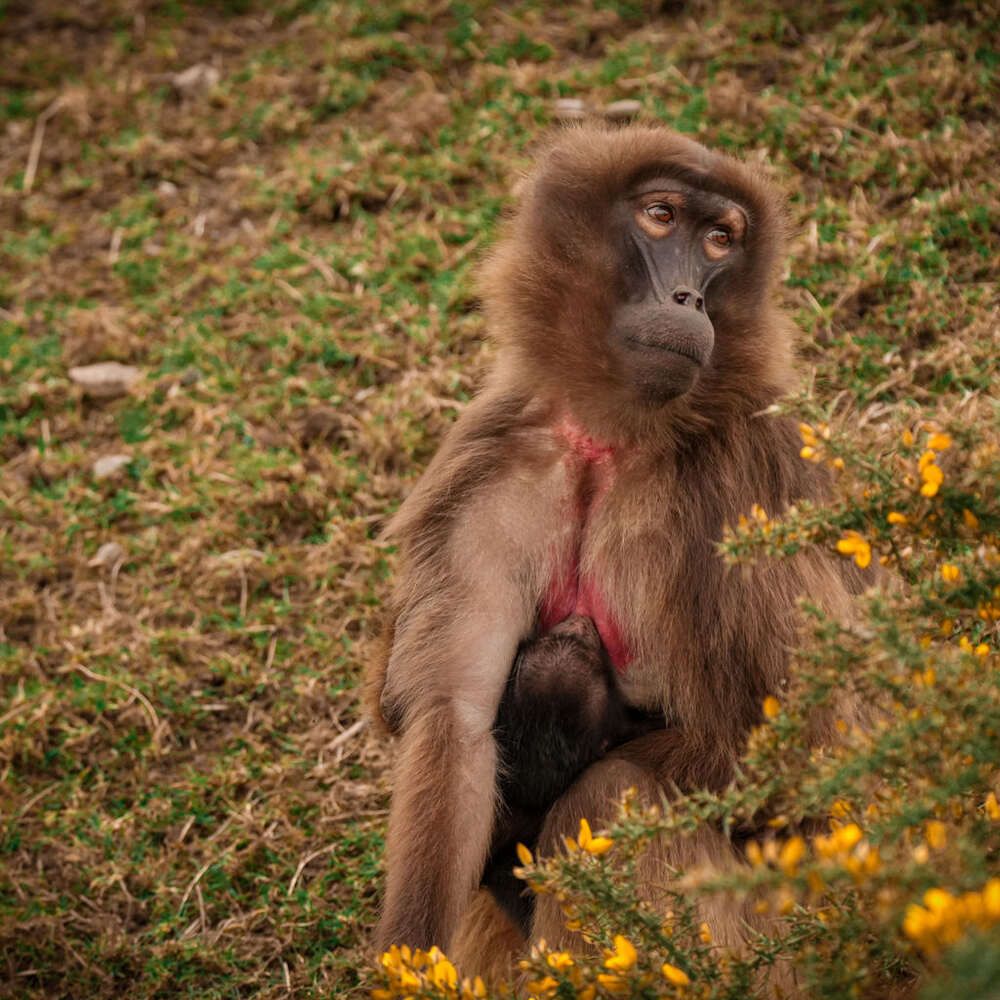
This birth has special significance for conservation programs as it establishes YWP as one of the first wildlife parks to successfully maintain two breeding troops of geladas within the same reserve, a rare accomplishment in captive management of this species.
The new arrival joins Bachuma’s previous offspring, Colin and Makeda, and becomes part of the park’s ‘Experience Ethiopia’ habitat, where ten geladas in Taylor’s group now live alongside six monkeys in a separate group led by Taylor’s half-brother, Obi.
Similar posts:
Conservation Significance
Geladas face increasing threats in their native Ethiopian highlands, making successful captive breeding programs crucial for their long-term survival. The birth contributes to the European Association of Zoos and Aquaria (EAZA) Ex-situ Programme, which coordinates breeding efforts across European zoos.
“Geladas originate from high rocky mountains in Ethiopia where global warming is threatening their existence,” Wright explained. “They are the last pure grass-eating species of primate left on the planet, and we are dedicated to protecting them.”
The park’s success with gelada breeding has earned them recognition in the zoo community. In October 2025, YWP will host the European Gelada Conference, bringing together zoo professionals specializing in this species.
Social Structure and Development
While the new father Taylor “isn’t too much help at the moment but sits close by,” other females in the troop are actively assisting with the infant’s care.
“The other females in the troop help Bachuma with grooming and check up on the baby,” Wright noted. “The other youngsters are pretty disinterested until the infant is around 4-5 months and more playful.”
Determining the baby’s gender will take time, as distinctive male characteristics develop later. “Male geladas have a long cape of hair and the red patch on their chest is much larger and brighter,” explained Wright.
The birth follows previous successful gelada births at YWP, including Azezo in December 2022 and Kobo in March 2024, both fathered by Obi.

While some visitors have already spotted the new arrival, Wright mentioned that most haven’t yet caught a glimpse. “As the weather gets nicer over the Easter holidays, the infant will definitely be out and about playing and more noticeable,” she said.
The 175-acre Yorkshire Wildlife Park is home to numerous endangered species and offers visitors close encounters with animals like Amur leopards, tigers, black rhinos, polar bears, and African painted dogs.
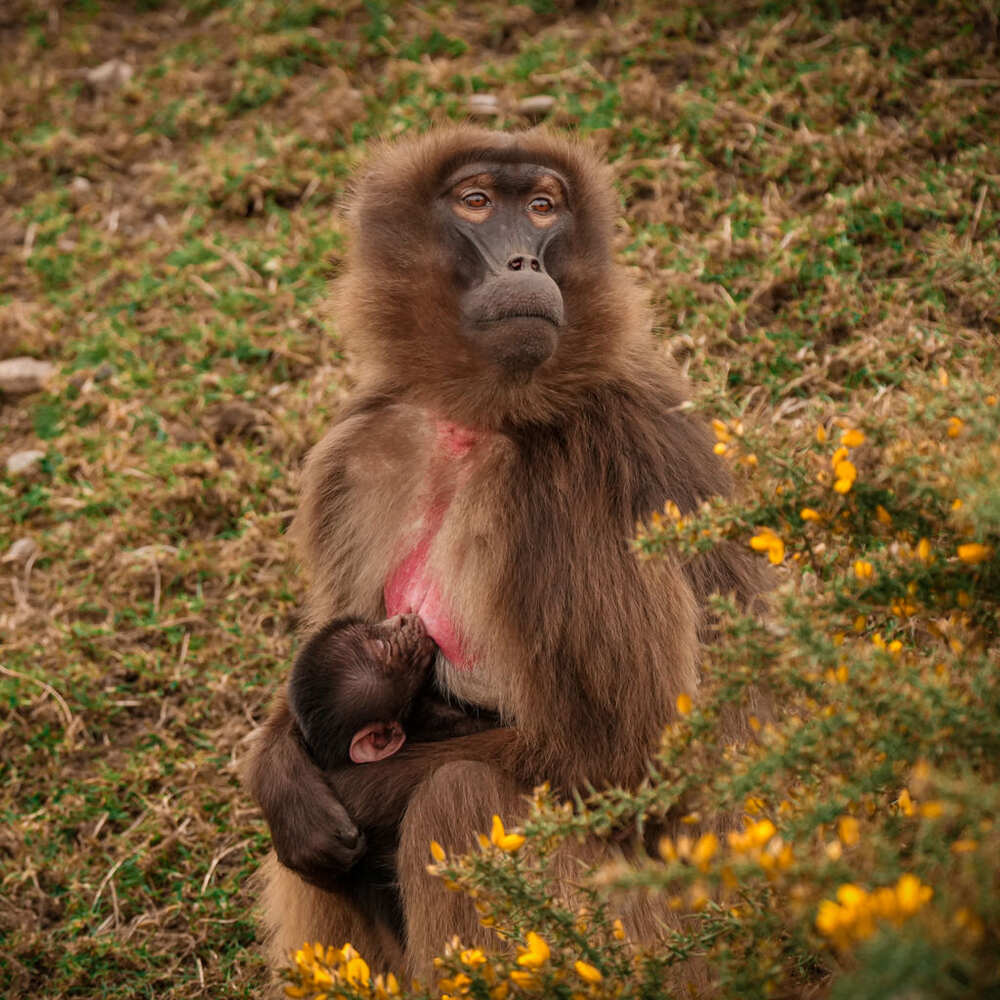


![Representative Image: European Starling [49/366]. Photo Source: Tim Sackton (CC BY-SA 2.0)](https://www.karmactive.com/wp-content/uploads/2025/04/Starlings-Drop-82-in-UK-Gardens-as-Birdwatch-2025-Reveals-Record-Low-Count-Since-1979-720x480.jpg)
